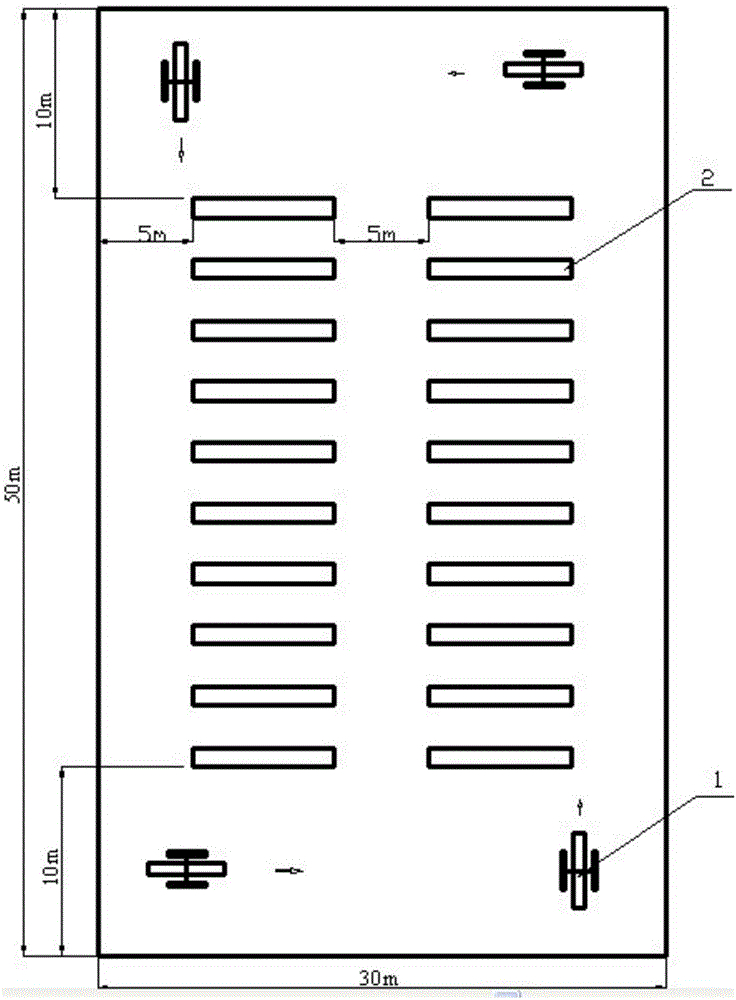Method for cultivating loach larvae by arranging net cages in pond
A technology for ponds and net cages, applied in fish farming, application, climate change adaptation, etc., can solve problems such as easy suffocation, vulnerable external gills, sinking into pond bottom mud, etc., to improve survival rate, reduce number, and avoid damage Effect
- Summary
- Abstract
- Description
- Claims
- Application Information
AI Technical Summary
Problems solved by technology
Method used
Image
Examples
specific Embodiment approach 1
[0018] 1. Choose an east-west rectangular pond with an area of 50×30m 2 , the depth of the pool is 1.2m, and the thickness of the mud at the bottom of the pool is about 20cm;
[0019] 2. Disinfection of clear pond: 10 days before putting in loach water spray, inject 60cm of new water, every 667m 2 Sprinkle the clear pond with 300kg of fresh limed water for disinfection;
[0020] 3. Five days before the opening of the loach water splash, refer to the patent (authorized announcement number CN101647420B) to apply 20kg of biological bacterial fertilizer in the pond, and at the same time, 5kg of monoammonium phosphate to cultivate bait organisms;
[0021] 4. Cage setting: 2 days before loach water flower stocking, set up a cage in the pond. The size of the cage is 7.5m×1m×0.7m, the mesh size is 60 mesh, the cage has 6 sides, and the upper cover can be opened. A total of 20 net cages are set, 10 rows and 2 columns are set along the length of the pond, and 9-10m long water surfac...
PUM
 Login to View More
Login to View More Abstract
Description
Claims
Application Information
 Login to View More
Login to View More - R&D
- Intellectual Property
- Life Sciences
- Materials
- Tech Scout
- Unparalleled Data Quality
- Higher Quality Content
- 60% Fewer Hallucinations
Browse by: Latest US Patents, China's latest patents, Technical Efficacy Thesaurus, Application Domain, Technology Topic, Popular Technical Reports.
© 2025 PatSnap. All rights reserved.Legal|Privacy policy|Modern Slavery Act Transparency Statement|Sitemap|About US| Contact US: help@patsnap.com

